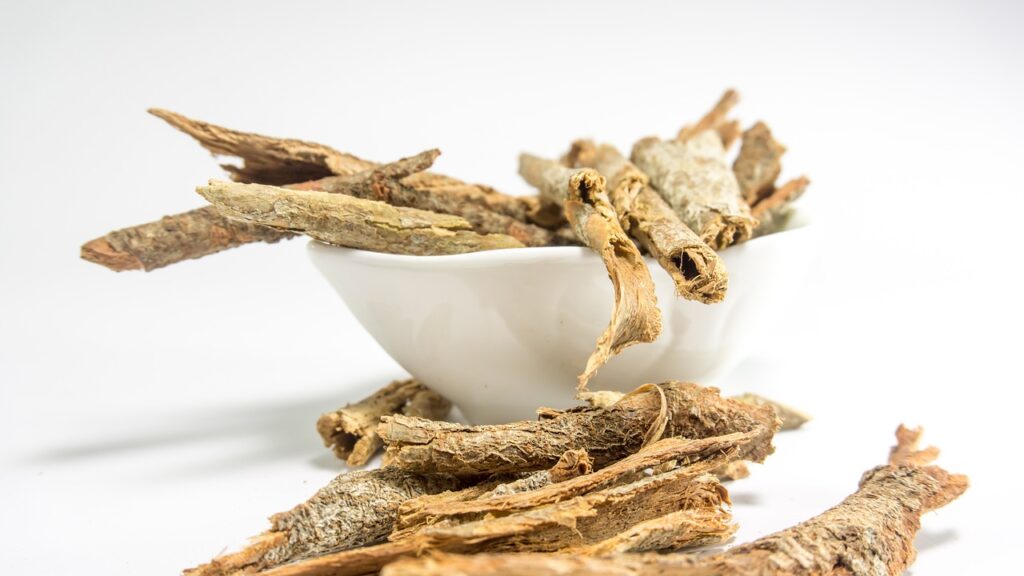Modern medicine has yielded many health breakthroughs. But today, people are traveling back in time to try ancient cure-alls. They are investigating traditional Eastern remedies, like Ayurvedic medicine, to determine their all-natural health benefits.
Recently, experts have found an Ayurvedic solution that can do wonders for digestive health. What is it, you may ask? Garlic milk.
Read on to find out why this unusual beverage may be the answer to your digestive woes.
What are Common Digestive Issues?
In modern times, people deal with a variety of digestive issues. Stress, unhealthy eating habits, and sedentary lifestyles lead to gas, bloating, and more serious conditions like irritable bowel syndrome (IBS) and ulcers. Poor digestive health can also harm the immune system and impact mental health.
What is Ayurveda?
Ayurveda is a natural medicine system that originated in India over 3000 years ago. It is based on the idea that disease is due to an imbalance in a person’s consciousness. It encourages healthy lifestyles and therapies that promote balance.
The practice is considered a form of medical care similar to Western medicine. Practitioners undergo institutionalized training in India to earn a degree. While these doctors are not recognized professionals in the United States, you can find respected Ayurvedic facilities throughout the country.
Moreover, the practices of Ayurveda, including meditation, yoga, massage, special diets, and herbal remedies, are often studied by experts for their potential to improve health.
What is Garlic Milk and How Can it Aid Digestion?
Garlic milk is just what it sounds like. It is a combination of garlic, cow’s milk, and water. Here’s how to make it at home:
Ingredients:
5g garlic
50 ml milk
50 mil water
Directions:
Combine milk and water.
Add garlic paste
Boil until reduced to 50 ml.
Strain and drink 10 ml after eating twice daily
Ayurveda Doctor, Dr. Rekha Radhomony recently took to Instagram to share garlic milk’s digestive benefits. “It is good for subsiding gas, bloating, abdominal cramps, and constipation,” she wrote. She also mentioned that the recipe could be beneficial to people with arthritis and heart disease.
“Do not consume daily forever. Use it for a few days and stop. Do not store and use it later,” she went on to explain.
Swathi, a Senior Dietician at Manipal Hospital Vijayawada explained the benefits of garlic milk in further detail. “Garlic milk is often touted as beneficial for digestive health, primarily due to the potential antibacterial and antifungal properties of garlic. These properties can combat certain gastrointestinal infections caused by harmful bacteria or fungus,” she said.
“It also possesses anti-inflammatory properties and provides essential nutrients like calcium, protein, and vitamins, contributing to overall health,” she went on to say.
Swathi also mentioned that garlic milk contains allicin which is beneficial to immunity and respiratory health. However, she mentioned that clinical studies on garlic milk’s benefits are limited. More research is needed to establish if these claims are true.
She also mentioned the potential side effects of garlic milk. Although it is generally safe, it is not recommended for people that are lactose intolerant or allergic to garlic. “Additionally, those with underlying medical conditions or taking specific medications should consult with a healthcare professional before adding garlic milk to their diet,” Swathi explained.
Other Ayurvedic Remedies for Digestion
Garlic milk has been recognized as an effective digestive remedy by experts. But in Ayurveda, a type of medicine that sees digestive issues as the root of most diseases, you can bet there are other treatments you can try. Here are some herbs that are recommended.
Hartaki (Terminalia Chebula)
Native to various regions of Asia, this herb is known to treat diarrhea, constipation, and indigestion. Ayurvedic practitioners recommend consuming it regularly to keep constipation at bay. It is available in powdered and candied forms.
Isabgole (Plantago Ovate)
Also called desert Indianwheat, this herb is native to the Mediterranean and regions of Asia. It is a highly recommended constipation remedy. It can also lower cholesterol.
Nisoth (Ipomoea Turpethum)
This species of the morning glory family is endemic to India. Its leaves and roots are used as a laxative. It should be taken in moderation.
Yatimadhu (Glycyrrhiza Gladra)
Also known as licorice, this plant grows in Asia, North America, and Europe. Its antacid properties make it an ideal digestive aid. It also reduces ulcers and congestion.
Lavanga (Sysygium Aromaticum – Clove)
This common Indonesian spice offers quick relief from digestive acidity. Chew on its leaves for optimal results.
Ginger (Zingiber-Officinale)
Ginger is a popular digestive remedy grown in the Caribbean Islands and China. It treats nausea and motion sickness. It is also known to improve mood and reduce inflammation.
Alsarex, Ayucid, Avipatrikar Churna
These herbs are often used in Ayurvedic medicine to treat digestive issues. They are more effective when combined.
What natural remedies or Ayurvedic medicine do you feel are best for improving digestive health?

